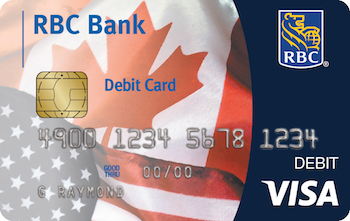As life is gradually returning to “normal,” many Canadian employers and employees are wondering if work-from-home scenarios will continue in some form. Now Canadian workers are starting to wonder: Can I work remotely from paradise?
The answer may depend on your company and personal factors. So it’s not a clear “NO,” but it’s not an absolute “YES” either.
There are many factors that determine your ability to work from home in the U.S. as a Canadian citizen and Canadian employee. Before you pack your laptop and sunglasses, it’s wise to take these three steps first.
1. Get approval from your employer to work remotely
If you’re thinking of travelling to a U.S. destination to work remotely, it’s essential to let your employer know your intentions before you put any plans in motion. Without prior approval, you might risk breaching your employment contract or open yourself up to disciplinary actions. Your company may have strict requirements and restrictions when it comes to remote work. For example, your employer may require you to return to the office on short notice, or they may have security protocols limiting the physical location of employees.
On the other hand, they may be fine with the idea.
The important thing is to be 100 per cent transparent with your company as you make your plans, and ensure they’re on board throughout the process. Many employers are creating rules and new guidelines as situations evolve. It’s smart to check regularly to ensure a previously approved move is still permitted.
Moving to the U.S. From Canada: Part 1
The Good, the Bad and the Taxes
2. Understand the tax and immigration implications
“If I work in the U.S. as a Canadian for a Canadian employer, will I be subject to U.S. income tax?”
This is likely the biggest question in the minds of Canadian workers considering the move. The answer is: it depends. It depends on both the amount of time you plan to spend in the U.S. and the ties you retain in Canada. For instance:
- You sell your home in Canada and plan on spending the full year in the U.S. You may now be considered a U.S. resident and subject to U.S. income tax regardless of the company you work for.
- You travel back and forth between the countries, retain an address and / or close family ties in Canada. You might be considered a Canadian resident still and expected to pay Canadian income taxes only.
Need to learn more about taxation and residency status? Read Seven Things Every Canadian Should Know About U.S. Tax & Immigration Rules.
Or check with a professional on the tax consequences of living a cross-border life.
3. Get sufficient medical insurance to work remotely in the U.S.
There is a wide range of insurance plans available to cover travellers across a spectrum of scenarios. If you’re thinking of spending months at a time in the U.S., be sure you choose coverage with a matching timeline. Many travel medical insurance plans max out at 60 days. If you’re thinking of travelling back and forth over the next year, look for plans that cover multiple trips annually.
Although you may already have travel coverage from your employer and health insurance from your province, these two sources may not be sufficient to cover extended or multiple trips. Given the high cost of medical care in the U.S., being adequately insured is a must.
The current environment may have opened up unique opportunities to work in your favourite U.S. destination. If your employer is comfortable with the scenario and you’re able to adhere to the U.S. tax and immigration rules, you may be able to enjoy a welcome change of scenery and take advantage of new remote working opportunities.
RBC Bank is RBC Bank (Georgia), National Association (“RBC Bank”), a wholly owned U.S. banking subsidiary of Royal Bank of Canada, and is a member of the U.S. Federal Deposit Insurance Corporation (“FDIC”). U.S. deposit accounts are insured by the FDIC up to the maximum amount permissible by law. U.S. banking products and services are offered and provided by RBC Bank. Canadian banking products and services are offered and provided by Royal Bank of Canada. U.S. deposit accounts are not insured by the Canada Deposit Insurance Corporation (“CDIC”).
This article is intended as general information only and is not to be relied upon as constituting legal, financial or other professional advice. A professional advisor should be consulted regarding your specific situation. Information presented is believed to be factual and up-to-date but we do not guarantee its accuracy and it should not be regarded as a complete analysis of the subjects discussed. All expressions of opinion reflect the judgment of the authors as of the date of publication and are subject to change. No endorsement of any third parties or their advice, opinions, information, products or services is expressly given or implied by Royal Bank of Canada or any of its affiliates.













